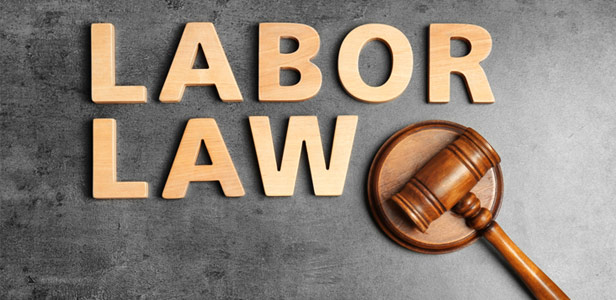News April 14, 2021
PRO Act’s Future Is Foggy But It’s Still in Play
Promo leaders fear the legislation could hurt the industry, but some labor advocates say such fears are unfounded.
A federal bill that industry leaders fear could have far-reaching impacts on the promotional products market – and potentially businesses, employees and independent contractors across industries – remains stymied in the U.S. Senate a month after the House of Representatives approved it along party lines.
The Protecting the Right to Organize Act (PRO Act), which aims to strengthen unions and encourage greater participation in unions, continues to sit with the Senate’s Health, Education, Labor and Pensions Committee, as it has since March 11, two days after the House approved the bill in a vote that saw only five Republicans go in favor with just one Democrat opposing.

Like most of their counterparts in the House, Republicans in the evenly divided Senate – with Vice President Kamala Harris having the deciding vote in deadlocks – oppose the bill too. Thus, even if the PRO Act is brought for consideration on the Senate floor as Majority Leader Chuck Schumer has vowed it will be once it gets 50 co-sponsors (there are currently 45), it’s likely that it will not obtain the 60 votes required to end debate on the bill and have it go to an actual vote.
Democrats could band together and remove this filibuster power Republicans hold, which would then clear the way for Democrats to pass the PRO Act by a simple majority vote.
Still, Democrats nixing the filibuster appears unlikely given the opposition of Democratic Senator Joe Manchin of West Virginia, who’s in favor of maintaining it. “I have said it before and I will say it again to remove any shred of doubt: There is no circumstance in which I will vote to eliminate or weaken the filibuster,” Manchin wrote in an opinion piece for The Washington Post.

Senator Joe Manchin of West Virginia.
Biden has called for the labor reforms the PRO Act envisions to be included in his proposed $2.3 trillion infrastructure improvement plan. It’s possible that Senate Democrats could use a process called budget reconciliation to pass that plan, but whether or not the PRO Act and its provisions would meet the standards for inclusion in a reconciliation vote is uncertain.
Reconciliation allows a piece of legislation to pass on a simple majority vote, but can only be used to move along certain types of proposals. Senate Democrats used reconciliation to pass Biden’s $1.9 trillion American Rescue Plan for COVID-19 relief earlier this year without a single Republican vote, but had to drop a proposed hike of the minimum wage to $15 an hour from the plan because it failed to meet standards for inclusion in a reconciliation vote. It’s possible, but not a given, that the PRO Act could meet a similar fate if reconciliation is Democrats’ chosen tactic.
Bottom line? The PRO Act’s future remains foggy in the Senate, but it’s still very much in play.
Why the PRO Act Has Promo Concerned
While the main thrust of the PRO Act is to strengthen unions and encourage more workers to organize, the legislation contains language that critics say would largely wipe out independent contractor status under most scenarios and compel companies across industries in the U.S. to reclassify contractors as employees.
Some promo professionals believe that would be disastrous for the industry, saying it could exponentially drive up industry firms’ labor costs, making companies less competitive, and/or compel companies to part ways with many of those currently classified as independent contractors, leading to a rash of hard-working promo professionals being put out of work.
“Independent contractors play a critical role in the promotional products industry, with both distributor and supplier firms. This legislation would be a major blow to industry entrepreneurs,” Dawn Olds, senior vice president of operations for Sterling, IL-based Top 40 distributor HALO Branded Solutions (asi/356000), told ASI Media when the PRO Act passed the House.
Olds is also head of Promotional Products Association International’s (PPAI) Government Relations Advisory Council (GRAC), which opposes the PRO Act. “PPAI and GRAC are strongly urging all industry participants to make their voices heard in Congress,” Olds said.
The ABC test included in the #PROAct would crush 59 million #freelancers across all industries. Read more on @Clevelanddotcom here: https://t.co/HuRqmIJYyI #StopthePROAct #smallbiz #FightForFreelancers pic.twitter.com/O4fc3BcHbW
— U.S. Chamber (@USChamber) April 8, 2021
While certain freelancers, such as some rideshare drivers, are in favor of the PRO Act, other freelancers, including many in the writing community, have been loud critics as they worry the bill will eradicate their livelihood.
Microsoft alum Matthew Mottola is CEO of Venture L., which uses software to “democratize self-employment for remote freelancers.” Writing for Forbes, Mottola said the PRO Act will “hurt the very people the bill tries to help — American freelancers.”
He pointed to “ABC” test language in the PRO Act that says an “individual performing any service shall be considered an employee and not an independent contractor, unless: (A) the individual is free from control and direction in connection with the performance of the service, both under the contract for the performance of service and in fact; (B) the service is performed outside the usual course of the business of the employer; and (C) the individual is customarily engaged in an independently established trade, occupation, profession, or business of the same nature as that involved in the service performed.”
In Mottola’s words: “A and C aren’t too bad. (B) is deadly as freelance work is typically core to the business. Unlike janitorial services, freelancers write core content, design core material and develop core assets.”
Proponents of the PRO Act say freelancers’ fears are unfounded, based on confusion and stoked by anti-union private industry entities that want to see the legislation defeated. Writing for pro-socialist publication Jacobin, labor lawyer Brandon Magner said the PRO Act would not kill freelancing or cause damage to freelancers.
“The ABC test, if passed as part of the PRO Act, would only affect the analysis of employee versus independent contractor status for the purposes of the National Labor Relations Board,” Magner wrote. “Put simply, the relevant question is whether certain workers possess rights under Section 7 of the [National Labor Relations Act], which guarantees employees (and employees only) the right to strike, collectively bargain, and engage in various other ‘concerted activities’ for ‘mutual aid or protection’…”
Magner continued: “What would the PRO Act not affect? Literally anything else. It would not change a worker’s employment status for the purposes of state laws, such as those involving minimum wage, overtime, unemployment compensation or various benefit schemes. Thus, a worker could feasibly be classified as an employee with unionization rights under the NLRA while still qualifying as an independent contractor under said state laws.”
Nonetheless, PRO Act critics aren’t buying arguments by Magner and others who say the freelance provisions in the legislation won’t hurt freelancers.
“Union proponents of the new bill, as well as politicians beholden to the powerful groups, insist that it’s only about expanding the people who can be in unions,” Erik Sherman, a freelance business, economics, finance and tech journalist, wrote for Forbes. “Not if you look at the evidence. The PRO Act is only a first step in a plan to expand the ABC test — which is a 1930s-era approach to identifying employees — to all areas of labor, employment and tax law.”
Sherman added: “The result would be to outlaw millions of independent contractors (probably about 10 million at current IRS estimates of actual ongoing business owners), presumably clearing out people who might compete with union members.”
